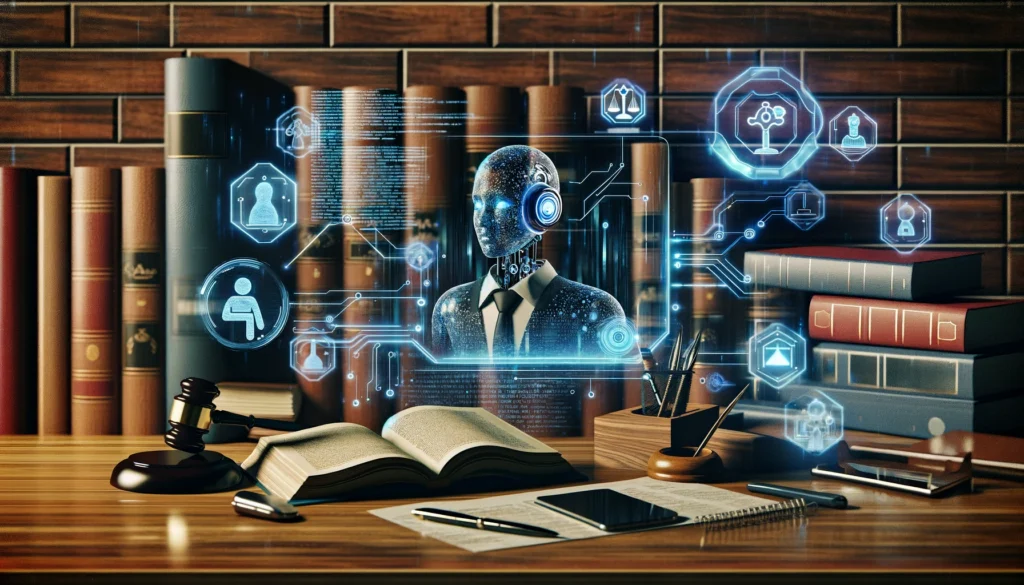
Unlocking New Possibilities with ChatGPT in Estate Planning
In an era where artificial intelligence (AI) is reshaping various professional landscapes, modern paralegal work is no exception. As the complexity of legal responsibilities grows, AI-driven tools like ChatGPT are becoming invaluable assets. Estate planning, a critical area of law involving the management of a person’s asset base in the event of their incapacitation or death, greatly benefits from such advancements. A pivotal component of estate planning is the drafting of codicils, documents that amend, rather than replace, a previously executed will. The transformative potential of ChatGPT in drafting codicils is unmatched, promising efficiency, accuracy, and customization.
Understanding these possibilities begins with a thorough grasp of codicils and their role in estate planning.
Understanding Codicils: A Primer for Paralegals
Codicils are supplemental documents to a will that make alterations, additions, or revocations without the necessity of redrafting the entire will. These legal instruments are vital for making minor but significant changes, such as adjusting provisions for beneficiaries or updating executor details. The integrity of estate plans heavily relies on the accuracy and clarity of these codicils. Errors or ambiguities can lead to legal disputes and unintended interpretations, making precision in drafting paramount.
A precise understanding and skillful drafting of codicils pave the way for leveraging advanced AI tools like ChatGPT.
Also read:
The Power of Prompt Engineering: Crafting Effective Inputs
Maximizing ChatGPT’s potential in estate planning is largely dependent on effective prompt engineering. This process involves crafting specific inputs to elicit optimal and relevant outputs from the AI. By tailoring prompts intricately, paralegals can guide ChatGPT to produce precise and nuanced drafts.
Here are some examples of basic prompts:
- Basic Prompt: “Draft a codicil that updates the executor of the will.”
- Advanced Prompt: “Prepare a codicil for a will, changing the executor from John Doe to Jane Smith, specifying the reasons for this change, and ensuring compliance with Virginia state laws.”
To refine prompts further, paralegals can add more context and specificity:
- Refined Prompt: “Create a codicil for the estate of Martha Adams, removing the current executor, John Doe, due to his long-term illness, and appointing her daughter, Emily Adams, as the new executor, including compliance with New York state regulations.”
Both the sophistication of prompts and the AI’s capability to interpret and respond effectively ensure the creation of accurate and legally sound codicils.
Having grasped the essentials of prompt engineering, we next explore how to integrate ChatGPT seamlessly into the daily workflows of paralegals.
Also read:
Supercharging Efficiency: Best Practices for Using ChatGPT
An optimized workspace is crucial for leveraging ChatGPT efficiently. Make sure the AI tool is readily accessible and integrated into the daily operations of the law practice. This can involve setting it up on dedicated systems or ensuring secure access for all team members.
Integration into daily workflows involves:
- Routine Consultations: Using ChatGPT for drafting initial codicil versions to save time.
- Refinement and Reviews: Leveraging AI for iterative drafts, with human oversight ensuring compliance and precision.
Combining AI-generated drafts with human expertise creates a powerful workflow. While ChatGPT can handle the bulk of the drafting process, paralegals must review and refine outputs, ensuring alignment with legal standards and client specifications.
This blend of AI efficiency and human oversight not only boosts productivity but also significantly elevates the quality of legal documents.
Next, we delve into creative methods to enhance the codicil drafting process using ChatGPT.
Also read:
Creative Techniques for Enhanced Codicil Drafting
ChatGPT’s potential extends beyond generating initial drafts. Utilizing the AI for intricate or complex clauses can add substantial value. By inputting detailed prompts, paralegals can derive comprehensive clauses tailored to specific client needs, ensuring bespoke services.
Examples include:
- Initial Drafts: “Generate a first draft of a codicil adding a new beneficiary, with specific bequests outlined.”
- Complex Clauses: “Draft a clause for a codicil that includes a trust fund for educational purposes, detailing terms for fund management and beneficiary access.”
Additionally, ChatGPT can assist in error-checking drafts, ensuring compliance with local and state regulations. Paralegals can prompt the AI to review codicil contents for consistency, legal terminologies, and proper structure.
By combining these creative techniques, paralegals can craft superior codicils tailored perfectly to individual client needs.
However, using AI tools also demands a keen understanding of ethical considerations and confidentiality protocols, as discussed next.
Also read:
Navigating Ethical and Confidentiality Concerns
Incorporating AI into legal practices brings valid concerns regarding client confidentiality and ethical practices. Ensuring that client data is secure while using AI tools like ChatGPT is paramount. This means utilizing secure platforms and adhering strictly to data protection regulations.
Best practices include:
- Data Anonymization: Ensure sensitive client information is anonymized in AI interactions.
- Secure Systems: Use encrypted systems for AI data processing and storage.
Maintaining these ethical standards ensures trustworthiness and integrity in AI-assisted legal drafting.
Managing such ethical guidelines effectively prepares paralegals to thrive in the evolving technological landscape.
Also read:
Future-Proofing Your Skills: Embracing Technological Advancements
As AI tools continue to evolve, staying updated with these advancements is crucial for paralegals. Continuous learning and adaptation can be achieved through accessible resources such as online courses, webinars, and legal tech forums. Embracing these technologies ensures sustained growth and preparedness for future legal practice challenges.
Also read:
Conclusion: ChatGPT as a Legal Ally in Estate Planning
In conclusion, leveraging ChatGPT in estate planning, particularly for codicil drafting, offers significant benefits. Combining AI’s efficiency with human expertise enhances productivity, accuracy, and client satisfaction. As we navigate the future, continued adaptation and ethical application of AI tools will undoubtedly shape a more innovative and effective legal profession.


